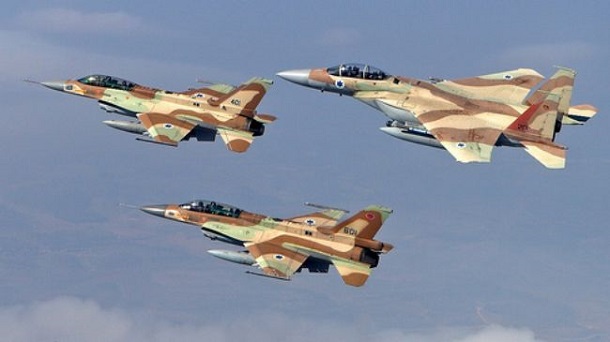Israeli officials have confirmed its air force carried out an airstrike allegedly targeting a shipment of advanced missiles in Syria.
The Israeli officials said the target was not chemical weapons, but of “game changing” arms bound for the Lebanese militant group Hezbollah.
Unnamed officials told AP and Reuters that the target weapons were not chemical, but were bound for Lebanon’s Hezbollah movement and were sophisticated enough to prompt the Israeli strike on early Friday.
On Friday media in Lebanon reported that Israeli jets conducted several sorties into Lebanese airspace, with some of them flying in circles over the capital, Beirut. Lebanon’s army website had listed an unusual 16 flights by Israeli warplanes penetrating Lebanese airspace from Thursday evening through Friday afternoon local time. Lebanon’s President Michel Suleiman condemned the flyovers, branding them a “continuation of Israel’s policy of aggression” and called on the international community to put pressure on Tel Aviv to stop this practice.
In a similar airstrike in January, Israeli warplanes destroyed what was reported as a convoy of advanced air defense missiles that Syria wanted to hand over to Hezbollah. Damascus said the target was a military research facility and denied trying to transfer advanced weapons to its ally. The surface-to-air missiles would compromise Israel’s ability to enter Lebanon’s airspace unhindered.
Israeli Embassy spokesman Aaron Sagui did not comment Friday night specifically on the report of an Israeli strike.
“What we can say is that Israel is determined to prevent the transfer of chemical weapons or other game-changing weaponry by the Syrian regime to terrorists, especially to Hezbollah in Lebanon,” Sagui said via email to the AP.
The overnight strike comes days after Hezbollah leader Sayyed Hasan Nasrallah voiced support of the Syrian government in a televised speech. The militant movement has significant political influence in neighboring Lebanon.
But the country itself has a significant Sunni population, and many of those people sympathize with the Syrian rebels. The argument over which side in the Syrian civil war Lebanon should support has sparked violent clashes in Lebanon on several occasions.
Israel has largely avoided interfering in the Syrian conflict, which has cost many thousands of lives. The government of Bashar Assad is technically at war with the Jewish state, inheriting the unresolved conflict from the 1967 War, in which Israel captured the Syrian Golan Heights. Syria has been allied with anti-Israel forces in the region for decades.
However, many of the rebels trying to oust Assad are hardcore Islamists and enemies of Israel. Israel’s involvement on one side of the conflict is likely to give credibility to the other and spark anti-Israeli sentiments in the war-torn country.
Israel’s January strike was not publicly confirmed by Israel, with Israeli officials each time stopping short of direct acknowledgement. In one of the most recent statements, Defense Minister Moshe Ya’alon told journalists that delivery of Syrian weapons to Hezbollah was considered a “red line.” Ya’alon then said Israel would not permit “sophisticated weapons” to fall into the hands of “Hezbollah or other rogue elements.”
“When they crossed this red line, we acted,” Ya’alon said on April 22 in what was regarded as a reference to the alleged Israeli airstrike in January.



